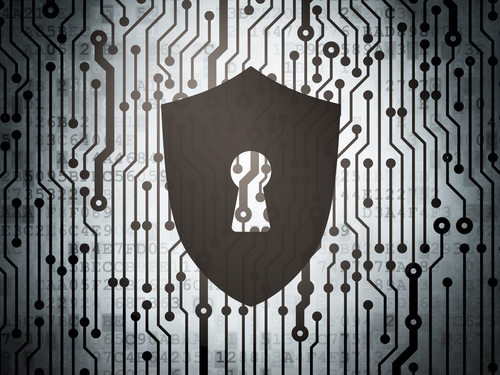Top 7 EU countries for cyber-security
BSI Features Writer
Published date: |
|
Modified date: |
|
 What do Target, Sony, Pinterest and Adobe have in common? The answer is, of course, that they've all fallen victim to hackers. However, these four incidents are notable not just for the scale of the security breach, but because they count among the top ten cyber incidents of all time.
What do Target, Sony, Pinterest and Adobe have in common? The answer is, of course, that they've all fallen victim to hackers. However, these four incidents are notable not just for the scale of the security breach, but because they count among the top ten cyber incidents of all time.
As well as businesses, cyber-crime also poses a serious threat to governments, economies and individuals. As a result, cyber-security has become an increasingly significant issue in recent years, with governments around the world investing more heavily in it.
Some argue that many governments have been reactive rather than proactive in the fight against cyber-crime. Effective policing of the cyber-sphere requires tight regulation and oversight of cyber communications, but this is not always easy to realize.
The Global Cybersecurity Index (GCI), compiled by the International Telecommunication Union, highlights the countries best prepared against cyber-attacks. According the report (and perhaps unsurprisingly) the US tops the list, with Canada coming second. However, plenty of European countries feature near the top of the table too. Here we take a look at some of cyber's top players in the EU.
Norway On a national level, Norway has in place a dedicated cyber defence unit which draws upon the expertise of military, national security and police security intelligence. Norway is also actively working alongside other Nordic countries to develop common platforms to counter cyber-threats.
1. Estonia
This northern European country may be small, but it is seen by many as paving the way in online data protection. Since 2007, when it was the victim of the first large-scale co-ordinated online attack, Estonia has dramatically increased security on national networks, developed a decentralized system, and added new digital components to its digital infrastructure. With so much of the country's identity online (Estonians can vote in general elections online, for example), cyber-security is paramount.
2. Germany
In July this year, Germany passed legislation requiring more than 2,000 essential service providers to implement new information security standards or face penalties. This comes after the creation of the National Cyber Defence Centre and National Cyber Security Council by the German government. Earlier this year, German government websites were hacked by a group demanding Berlin cease their support for the Ukrainian government.
3. UK
The UK government's £860 million Cyber Security Strategy was rolled out four years ago, and cyber-security is an issue that remains a top priority today. New initiatives include a voucher scheme to help the UK's SMEs protect themselves from cyber-crime. GCHQ, the government's intelligence-gathering operation has joined forced with the Ministry of Defence to help counter threats to the UK.
4. Netherlands
The Dutch Cyber Security Council (DCSC) was launched in 2011 and represents a cross-section of industries from both the private and public sectors. According to the DCSC, the Netherlands has one of the highest percentages of internet users in the world. The government's priorities for cyber-security are updating legislation and focusing on investigation and prosecution.
5. Latvia
The Latvian presidency of the European Council put cyber-security firmly on the Latvian digital agenda, giving the country an opportunity to gain comprehensive insights into the EU's cyber-security landscape. Latvia has in place a Cyber Security Strategy, an initiative to develop and implement cyber-cleanliness in everyday work with IT, and a Cyber Defence Unit compiled of experts from the public and private sectors. Unlike neighbouring Estonia, Latvia is yet to be hit by a major cyber-attack.
6. Finland
Two years ago Finland announced its plans to be a global forerunner in cyber-security by 2016. They certainly have the right strategies and practices in place to help them achieve that goal. Finland has to its name a large quantity of worms, malware and viruses protecting the country's military, government, businesses and critical infrastructures against cyber-attack. As well as preventative measures, they also employ defensive measures recognizing system hacks are virtually inevitable.
7. Sweden
Similar to its Nordic neighbours, Sweden has also adopted a cross-sector approach to cyber-security. It is expanding its defence network to harness the technical expertise of the private sector and to facilitate a better-informed policy making process. Sweden also plays a crucial part in ensuring that all Nordic countries work together promoting information exchange and addressing all issues surrounding cyber-security. This level of transparency and focus on information sharing helps the country to work smarter and react more effectively to change.
Click here to provide feedback

